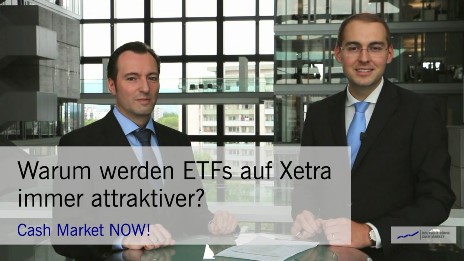(MarketsMedia)–European exchange-traded fund (ETF) issuers have welcomed a new service from Deutsche Börse which aims to make it easier to trade large ETF orders on the German exchange.
Deutsche Börse has launched Xetra Quote Request which allows investors to send quote requests for large orders to all registered market makers of a selected ETF, rather than having to negotiate ETF transactions bilaterally over-the-counter or through request-for-quote systems.
The market makers respond by updating their quotes in the Xetra order book, Deutsche Börse’s electronic trading platform. Investors can generally receive a response within 120 seconds of the submission of a quote request although less liquid funds may require more time than highly liquid products according to the exchange.
The process is designed to achieve a high degree of automation with straight-through processing, clearing and settlement, which reduces operational and counterparty risks, while ensuring compliance with best execution requirements for large orders.
Deutsche Börse said in a statement: “Investors therefore benefit from a potential price improvement over execution against a single market maker quote, and ensure best execution by simultaneously interacting with the full liquidity available in the order book.”
Jürgen Blumberg, head of European capital markets at Source, told Markets Media that the European ETF issuer very much liked the Deutsche Börse initiative. “In Europe approximately 70% of ETF volume is traded over-the-counter and liquidity is invisible. If there is more visibility then ETFs will be even more widely used,” he added.
Lansing agreed that the European market will benefit from more on-exchange trading.
“A number of ETP issuers (including us) have long recommended the creation of a consolidated tape (a comprehensive record of both on-exchange and OTC trades),” Lansing added. “Given that that is still in process, more trading on-exchange will go a long way to promoting greater liquidity, price discovery and transparency.”
MiFID II is due to introduce mandatory reporting for ETFs but the new regulations covering European financial markets have been delayed by one year to 2018.
For the full article from MarketsMedia, please click here

